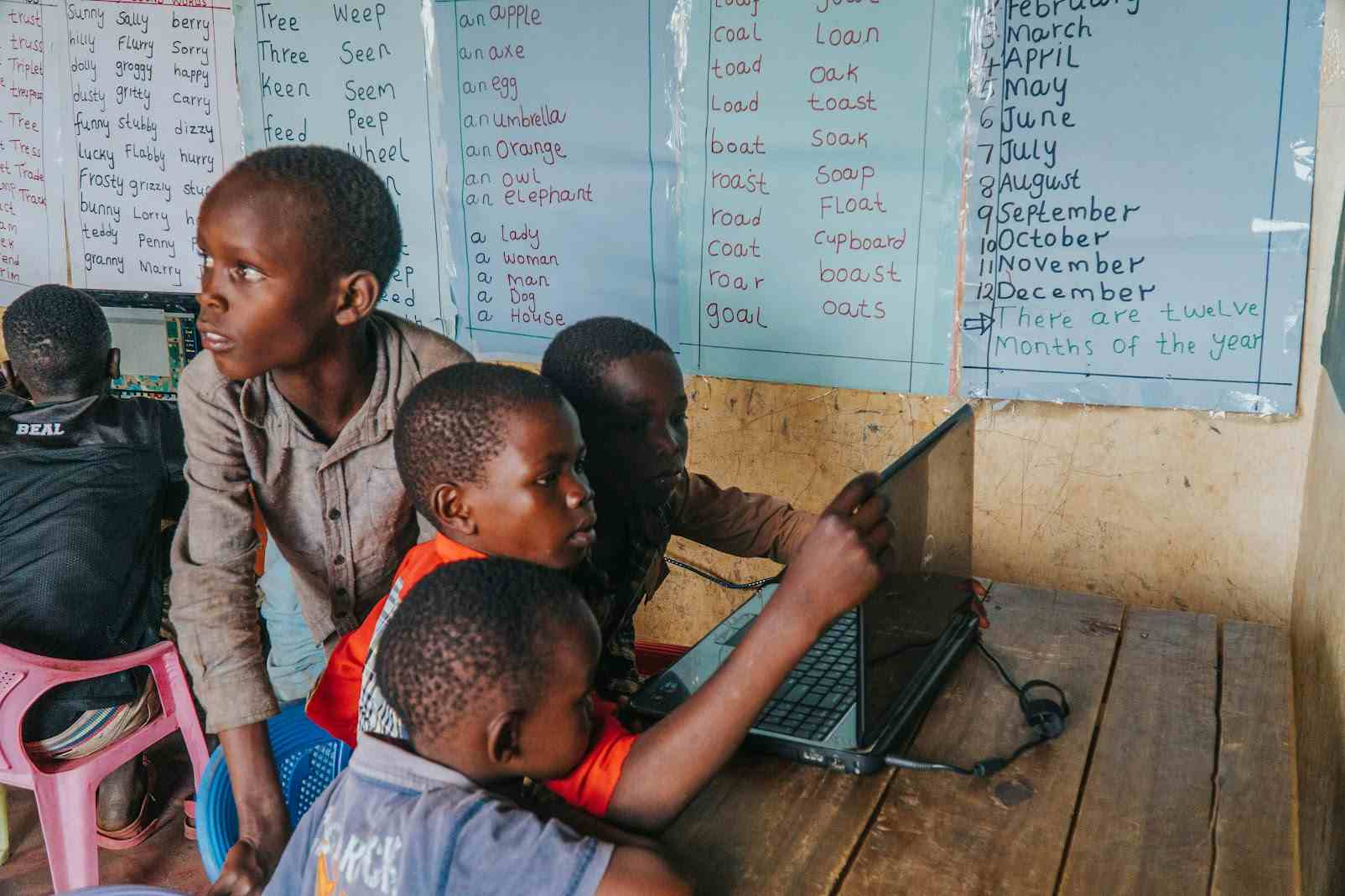
Hosting an Open Computer Lab in Kenya

In 2019, Nelly and I worked hosted 1,200 kids from Mogotio in our open lab experiment. In two months, we built systems to safely and efficiently transform thousands of kids into digital natives.
Disrupting Bullies
Before focusing on teaching kids, we were focused on teaching adults. The kids didn't get much attention at that time, and we learned that there was a bullying problem. We believed that kids would learn more when they were free to share and play together without structure. Unfortunately, that was only partly true.
One boy that lived nearby came to the lab every morning. Even when we had 60 kids in the lab, this kid was at the laptop. One day I saw why: every day when this kid arrived, he pushed other kids away and took a laptop for himself.
Whenever we checked on the kids, we saw confidence and proficiency and took that to mean the kids were all learning. What we didn't see was that only the kids who pushed their way to the front were learning. All the kids watching had still never touched a computer.
We fixed the bullying problem by giving every kid the right to one hour per day with a laptop. We made sure the kids were always supervised, and we even started a leadership club where the kids would help each other for the day.
Unleashing Motivation
We learned from giving every student their own time with a computer that most were still afraid and confused. Within a few days of one-on-one experience, they were just as confident as the bullies!
After a week or two, Nelly realized the kids were motivated by competition, so we connected all the computers to a local intranet to host a competition. Kids brought all their friends after that, and taught each other how to type in their name, how to debug the networking, and how to start and join a server.
We started hosting tournaments twice per week, starting an hour before dusk. Tournaments were the most exciting thing in town.
1,200 Kids
We only had 16 laptops in 2019, so we quickly ran out of hours in the day. We watched as many sessions as we could to learn how we could improve the experience for the kids.
I tweaked our desktop and reconfigured all the apps as often as possible. There were a dozen kids waiting when I showed up at 6am and a few still hanging around when I left late at night.
To accommodate more kids, we shrunk the daily session time to 20 minutes, recorded names to prevent kids from coming more than once, and played educational shows on a TV in the next room to draw some kids out of the yard.
Gender Equality
Ultimately, we decided that hosting open computer labs was not the best solution. Even though it was more fun than anything else, it took an excessive amount of time and work.
The most important reason that we decided to teach classes in primary schools, rather than scale our open lab model was because the open lab model favors boys over girls. Girls in Mogotio were often responsible for chores and had to watch younger siblings (like newborn babies).
By working in primary schools, we get a secure room with electricity. And most importantly, we bring digital skills to 1,000 boys and girls at once.
About The Author

Tyler Cinnamon is a American programmer and entrepreneur. He started TechLit Africa with Nelly Cheboi in 2018 to disrupt poverty with used IT devices.